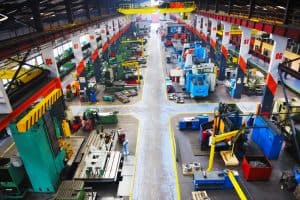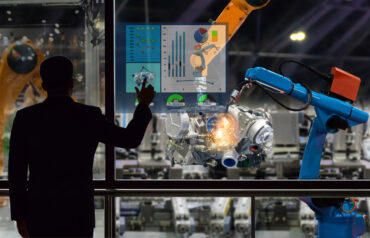
Forward-looking intelligent factory organizations embrace new technologies and take a keen interest in workforce development.
The promise of the intelligent factory is far from a reality. “More than 70% of companies are still stuck in pilot purgatory, while only a select group of leading manufacturers are able to deploy advanced manufacturing at scale, generating new value and customer experiences within the factory or across value chains.”
This was one of the takeaways from a report from the World Economic Forum issued in conjunction with its recently launched “Global Lighthouse Network,” which seeks to promote Industry 4.0 through initiatives such as digital transformation and artificial intelligence. The goal of the effort, WEF says, is to encourage best practices that promote skills development and sustainability on the road to achieving intelligent factory status. There are now 69 factories and sites that are a part of the network.
See also: Can the Smart Factory Get Even Smarter?
Forward-looking industrial enterprises are aggressively embracing next-generation technologies such as digital platforms and AI for both production networks as well as business functions, the report states. “The majority of organizations have yet to achieve this and, the percentage of companies that report a situation of ‘pilot purgatory’ rose sharply to 74% in 2020, up from 56% the prior year.
Scaling Industry 4.0 efforts has “proven to be more difficult than initially thought,” the report’s authors state. “Market disruptions and upheavals have precipitated difficult reckonings as industrials have had their investments pressure-tested, and a new understanding of scale has emerged from the realization that they did not scale as much as they thought.”
Companies that are achieving “lighthouse” status “have fully embraced agile ways of working,” the WEF report states. “This has enabled them to scale Fourth Industrial Revolution technologies quickly across their production network and value chains. By transforming their operations to maximize flexibility and adaptability, lighthouses allow for innovative thinking and dynamic approaches. This supports close attunement to shifts in supply, demand, and customer expectations.”
These forward-looking organizations also “take a keen interest in workforce development. Training, reskilling and upskilling – teaching new skills for future jobs – keep their workforces prepared and optimized in a Fourth Industrial Revolution environment.”
These enlightened companies “keep people at the center of their Fourth
Industrial Revolution transformation with a focus on inclusive growth, thus ensuring operators have the opportunity to realize their full potential to build the innovative, creative future at the heart of the reimagined industry. This workforce engagement is essential to successful scaling. Scaling is a team effort, and people are the team.”
.






